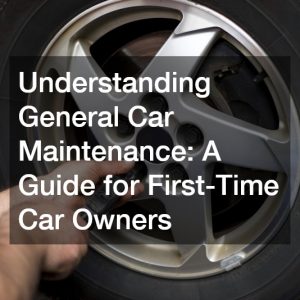One of the most promising solutions gaining traction is the advantage insurance payment model. This innovative approach is designed to help policyholders save money while simplifying the process of maintaining essential insurance coverage. Whether you’re managing an auto insurance service, dealing with auto body repair, or facing unexpected issues like engine repair, this type of payment system offers a streamlined, cost-effective alternative to traditional billing structures.
How This Model Contributes to Long-Term Financial Savings
Understanding how advantage insurance payments work is essential to unlocking their full potential. Unlike conventional lump-sum payments, advantage plans typically break down insurance costs into manageable installments while offering added flexibility, personalized terms, and often even discounts. This allows individuals and families to maintain coverage for things like auto window replacement, regular visits to a local auto body shop, or even oil tank testing services, all while staying within budget. As a result, policyholders are better equipped to handle both routine and emergency expenses without the financial strain.
What This Article Will Cover
This in-depth article will guide you through everything you need to know about advantage insurance payments. We’ll break down the key features, explain how they differ from traditional payment models, and share real-world scenarios where this approach has made a measurable difference. We’ll also show you how this system applies across various services—from local junk yard solutions and biodiesel support to steel recycling programs and comprehensive insurance for your vehicle or home.
Ultimately, you’ll walk away with a clear understanding of how advantage insurance payment plans can transform the way you manage insurance—helping you save money, stay protected, and plan for the future with confidence.
What is Advantage Insurance Payment?
Definition and Overview
Advantage insurance payment refers to a flexible, often customizable approach to insurance premiums and reimbursements. These plans prioritize affordability, consumer control, and streamlined claim processes.
Key Features of Advantage Insurance Payment
Lower upfront payments
One of the most attractive features of advantage insurance payment plans is the significantly reduced initial cost. Instead of paying a large lump sum, policyholders can begin coverage with a much lower upfront payment, making insurance more accessible and manageable for individuals and families with tighter budgets.
Tailored monthly or quarterly billing
These plans offer flexible billing cycles that can be customized to fit your financial situation. Whether you prefer monthly or quarterly payments, advantage insurance payment options allow you to align your insurance costs with your income schedule, ensuring smoother cash flow management.
Rewards for low claims history
Many providers offer additional incentives for maintaining a low or no-claims record. Policyholders with a clean claims history may be eligible for discounts, rebates, or lower premium adjustments—further enhancing the cost-saving benefits of choosing an advantage payment plan.
How It Differs from Traditional Insurance Payments

Traditional plans typically require full annual or biannual premiums upfront. Advantage plans break costs into manageable parts, sometimes with performance-based discounts.
Eligibility Criteria
Eligibility varies, but most providers require a solid claims history, a credit check, and consistent policy renewals.
Pros and Cons of Advantage Insurance Payment
Pros
Lower monthly financial burden
Advantage insurance payment plans spread costs over time, significantly reducing the monthly financial strain on policyholders. This structure makes it easier for individuals and families to maintain essential coverage without the stress of large lump-sum payments.
Easy budgeting
With predictable, scheduled payments—whether monthly or quarterly—policyholders can better manage their household budgets. This consistency in billing helps avoid surprise expenses and allows for more effective financial planning throughout the year.
Incentives for safe behavior
Many insurance providers reward policyholders who maintain a clean driving record or have fewer claims. These rewards can come in the form of discounts or rebates, encouraging safer behavior while further reducing overall costs.
Cons
May come with service fees
Some advantage insurance payment plans may include small service or administrative fees for breaking up premiums into installments. While generally modest, these fees can slightly offset the total savings if not carefully reviewed.
Requires careful policy management
To maximize the benefits, policyholders need to stay on top of payment schedules, review policy updates, and ensure continuous coverage. Missing a payment or misunderstanding coverage details could lead to complications or lapses in service.
How Does Advantage Insurance Payment Work?
Process and Mechanism
Once enrolled, policyholders pay in structured intervals. Claims are often reimbursed quickly, and digital tracking makes management simple.
How Does Advantage Insurance Payment Work?
Advantage insurance payment plans are designed to offer flexibility, affordability, and simplicity. By understanding the various structures, use cases, and steps involved, policyholders can make more informed decisions that align with their financial goals and coverage needs.
Payment Structures
Fixed monthly rate
Many advantage insurance plans offer a consistent monthly payment amount, making it easier to plan and maintain a stable household budget. This fixed-rate option ensures there are no surprises, providing peace of mind over the life of the policy.
Usage-based pricing (especially in auto insurance service)
In certain cases—especially in auto insurance service—providers offer usage-based pricing models. This means the premium is calculated based on actual driving behavior, such as mileage, braking patterns, and overall road safety. This model benefits safe and infrequent drivers by lowering their premiums.
Tiered payments depending on risk profile
Some insurance plans adjust payment tiers based on the customer’s risk profile. For example, a driver with a clean record may qualify for a lower tier, while someone with a history of accidents or violations may be placed in a higher one. These structured tiers allow for fairness in pricing while encouraging responsible behavior.
Common Use Cases
Auto insurance
Advantage insurance payments are frequently used in auto insurance service, especially where flexibility and budgeting are key concerns. From local auto body shop repairs to engine repair or auto window replacement, these plans help mitigate financial strain during unexpected incidents.
Homeowners insurance
For homeowners, advantage payment plans can simplify costs associated with protecting the home. Whether it’s structural coverage, liability, or personal property protection, paying in smaller installments helps manage large insurance needs without a large upfront outlay.
Medical coverage
Advantage payment structures are also becoming increasingly popular in medical insurance. With the rising cost of healthcare, monthly or quarterly installments make it easier for individuals to stay insured without jeopardizing other areas of their budget.
Step-by-Step Guide
Apply for a quote
Begin by requesting a personalized quote from your preferred insurance provider. This helps you understand the available plans and estimated costs based on your specific situation.
Choose your plan
After reviewing your quote options, select the advantage insurance payment plan that best aligns with your coverage needs and financial comfort zone.
Submit required documents
Provide all necessary documents such as identification, proof of income, driving history (for auto insurance), and any other forms your provider may request to verify eligibility.
Make your first payment
Once your application is accepted, you will typically be required to make your first installment to activate the coverage.
Begin coverage
With your plan in place and payment made, your insurance coverage becomes active. You’ll now benefit from ongoing protection while enjoying the cost-saving advantages of your payment structure.
Real-Life Examples
Consider a driver who uses a local auto body shop for auto body repair. An advantage plan might cover part of their deductible or reimburse them for repairs more efficiently.
Why Choose Advantage Insurance Payment?

Cost Savings Potential
Advantage insurance payments often result in significant savings over time. In auto insurance service, for example, drivers with clean records enjoy major discounts.
Flexibility and Convenience
Policyholders can adjust plans as needed, especially useful for businesses in need of engine repair or auto window replacement.
Customer Satisfaction Rates
Surveys show higher satisfaction levels among advantage plan users thanks to transparency and convenience.
Comparison with Other Payment Plans
When compared to lump-sum or annual payments, advantage plans offer better short-term liquidity and lower risk.
Long-term Financial Benefits
Over years, savings can be reallocated to emergency funds, home improvements, or vehicle upgrades.
Common Types of Advantage Insurance Payments
Health Insurance
Often features lower co-pays, telehealth options, and wellness incentives.
Auto Insurance
Discounts for safe driving and bundling with services like auto body repair shop policies.
Homeowner’s Insurance
Coverage can include smart home technology incentives and multi-property discounts.
Life Insurance
Advantage plans often offer simplified underwriting and flexible premiums.
Travel Insurance
Short-term plans with high value and clear refund policies are gaining popularity.
How to Enroll in an Advantage Insurance Payment Plan

Research and Choose a Provider
Look for trusted companies like FLB Insurance offering auto plans.
Application Process
Most can be done online in minutes with personal and vehicle information.
Documentation Requirements
Prepare your ID, previous insurance history, and bank info.
Reviewing Terms and Conditions
Always read the fine print for exclusions, particularly regarding auto body repair and engine repair clauses.
Confirming Your Enrollment
You’ll receive confirmation via email and can often download a digital insurance card immediately.
Maximizing Savings with Advantage Insurance Payments
Leveraging Discounts and Rebates
Programs reward loyalty, claim-free history, and safety features in your vehicle.
Tracking Your Savings
Use apps provided by your insurance to track claims, payments, and rebates.
Adjusting Coverage for More Savings
Drop unnecessary coverage or increase your deductible strategically.
Case Studies and Success Stories
Jane from Michigan saved over $500 annually by switching to a provider who partnered with a steel recycling company and local auto body shop for discounted repair parts.
Challenges and Considerations
Identifying Hidden Costs
Watch for vague policy wording that could increase costs related to biodiesel-powered vehicles or specialty services.
Managing Multiple Policies
Keep a spreadsheet or use insurance aggregators to monitor several policies.
Handling Disputes and Claims
Dispute resolution should be clearly outlined in your plan. Some insurers provide direct repair programs with trusted partners like National Body Works.
Future Implication and Risks
Changes in technology or law may affect usage-based pricing and rebate structures.
The Impact of Advantage Insurance Payments on the Industry

Current Trends
More insurers are embracing flexibility and digital-first solutions.
Influence on Market Dynamics
Companies offering biodiesel and eco-friendly services like steel recycling are influencing premium structures.
Regulatory Considerations
States are creating guidelines for fairness in usage-based models.
Technological Advancements
From GPS mileage tracking to AI-based risk assessments, tech is reshaping how advantage plans work.
Future Developments
Expect integrations with oil tank testing service companies and other environmental monitors.
A Smart, Modern Approach to Insurance Management
Advantage insurance payment isn’t just a passing trend—it represents a strategic and forward-thinking approach to managing a wide variety of insurance needs. As more consumers look for ways to streamline their expenses without compromising coverage, this payment model has become increasingly popular. Whether you’re securing an auto insurance service for daily protection or preparing for unexpected incidents like engine repair or auto body repair, advantage insurance payments offer built-in flexibility, convenience, and savings.
Financial Flexibility for Real-Life Situations
The real strength of advantage insurance payment lies in its ability to adapt to real-life situations. For example, if you’ve recently visited a local auto body shop for auto window replacement or sought help from a local junk yard for parts, these costs can quickly add up. However, when paired with an advantage payment plan, such services become more manageable through pre-set, predictable payments. Even for more niche services—such as oil tank testing service or environmental solutions like biodiesel and steel recycling—advantage plans help you stay financially on track.
Building Toward Long-Term Financial Peace of Mind
By leveraging advantage insurance payments, you’re not just managing monthly bills—you’re creating a more stable financial future. Consumers who take the time to explore this model often report higher satisfaction, lower stress, and more control over their personal budgets. From auto body repair shops to steel recycling centers, this payment approach supports financial literacy and smarter decision-making across a wide range of industries.
Explore, Enroll, and Elevate Your Coverage
Now is the time to explore your options. Research different providers, examine the terms of their advantage plans, and determine which policies align with your financial and personal needs. From auto insurance service to engine repair, an informed approach can unlock significant long-term savings. Don’t wait for a crisis—take proactive steps to enroll in a plan that’s designed with your best interests in mind.





